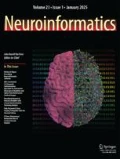In healthcare where time is life, the integration of the latest breakthroughs in high performance computing (HPC) into the biomedical research field might speed up the development of computationally expensive, though not time-consuming, neurocomputing methods, including machine learning, neural networks and its variant architectures, deep networks and multi-source healthcare data representation and learning. HPC will improve the applicability of technically advanced neurocomputing frameworks with high computational complexity to solve healthcare issues in real time —including patient diagnosis and prognosis. This will enable remarkable advances in the fields of healthcare, drug discovery, genome research, computational biology and so on. By bringing HCI and neurocomputing together, scientists can create new exciting personal therapeutic strategies for living longer and having healthier lifestyles that were unfeasible not that long ago. High performance computing technologies are at the foreground of these revolutions, making it possible to carry out and accelerate radical biological and medical breakthroughs that would directly translate into real benefits for the society and environment.
Although the intersection of bio-medical informatics and high performance computing has demonstrated the potential to make a significant impact in the translation of bio-medical research from the lab into clinical practice, high-performance computing technologies are complex and their exploration in the bio-medical domain leads to a number of new and interesting research challenges, such as discovering bio-markers from large population cohort and developing high throughput systems for high dimensional data. These challenges require novel neurocomputing techniques for data mining, data retrieval and staging, and data processing and visualization to minimize I/O and computation overheads, exploit computing and memory capacity distributed across multiple types of devices and systems, and maximize application throughput while reducing application development complexity.
The central aim of this special issue is to present the state of the art of computational methods that address the above challenges of high performance computing in bio-medical informatics. The scope of this special issue is highly interdisciplinary, including the methodology of HPC and HPC application in neurocomputing, bioinformatics and medical imaging. The topics covered in this special issue reflect an ongoing evolution of the field of bio-medicine, and span a broad range from the prediction of dementia or analysis of neuronal activity, through the segmentation of brain structures/lesions, to the GPU accelerated tool for browsing neuroimaging genomics. As the public bio-medical datasets grow larger and become more complicated, the need for more advanced computational methods to analyze and interpret the data grows. For example, deep neural networks and graphical models have been proposed to address a variety of neuroscience related problems investigated using multiple imaging modalities in this special issue. HPC platforms ensure these methods to be computationally tractable. We hope that this special issue will aid research in HPC for bio-medical data analysis by stimulating new ideas and opportunities for developing cutting-edge computational methods, which will, in turn, accelerate scientific discoveries and enable the translation of these ideas and discoveries into successful therapies for patients.
June 2018
Author information
Authors and Affiliations
Corresponding author
Rights and permissions
About this article
Cite this article
Zhou, L., Rekik, I., Yan, C. et al. Special Issue on High Performance Computing in Bio-medical Informatics. Neuroinform 16, 283 (2018). https://doi.org/10.1007/s12021-018-9393-x
Published:
Issue Date:
DOI: https://doi.org/10.1007/s12021-018-9393-x

